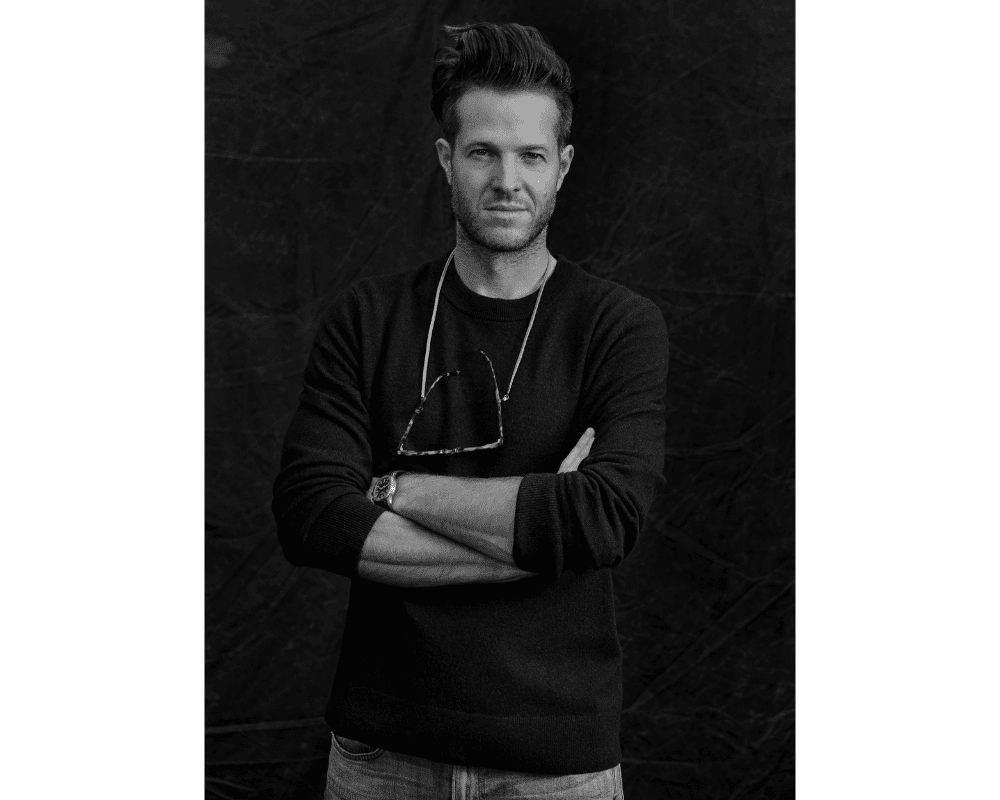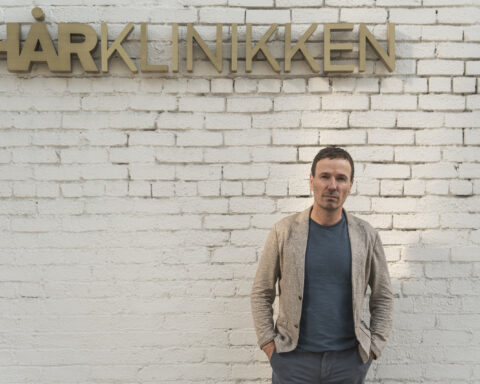When Oli Walsh describes his upbringing, it seems almost inevitable he would end up co-founding a wellness brand. “My father was a serial entrepreneur,” he says. “And my mother was a homeopathic shaman, reiki master, poet – which is still quite progressive now, but was highly alternative back in the day. Bringing your mates home to play on the Playstation, when there were 12 people in the living room doing a shaman journey, was certainly interesting.”
Since those interesting early days, growing up in the historic British spa town of Cheltenham (where reiki masters are in short supply!), Oli has been on his own unique journey which has now landed him in the booming self-care industry, via the worlds of fashion and marketing. And looking at the confident aesthetic of ASYSTEM, the supplements brand he co-founded in 2019, that creative and apparel experience shows. He was previously co-founder and CEO of the digital creative agency Wednesday, alongside Erik Torstensson who we have previously profiled at Mr Feelgood, which connected luxury fashion brands with new technology and storytelling techniques. He was also one of the key figures in the launch of online clothes boutique Mr Porter, then spent five years as the chief marketing officer of womenswear label Aritzia.
Now, along with fellow fashion entrepreneur Josh LeVine, he is brains behind ASYSTEM, which offers “high performance supplements which look as good as they work.” They offer combinations of supplements, often in the form of their eye-catching branded gummies, along with topical skincare products to help us look and feel our best, all presented with the co-founders’ eye for style.
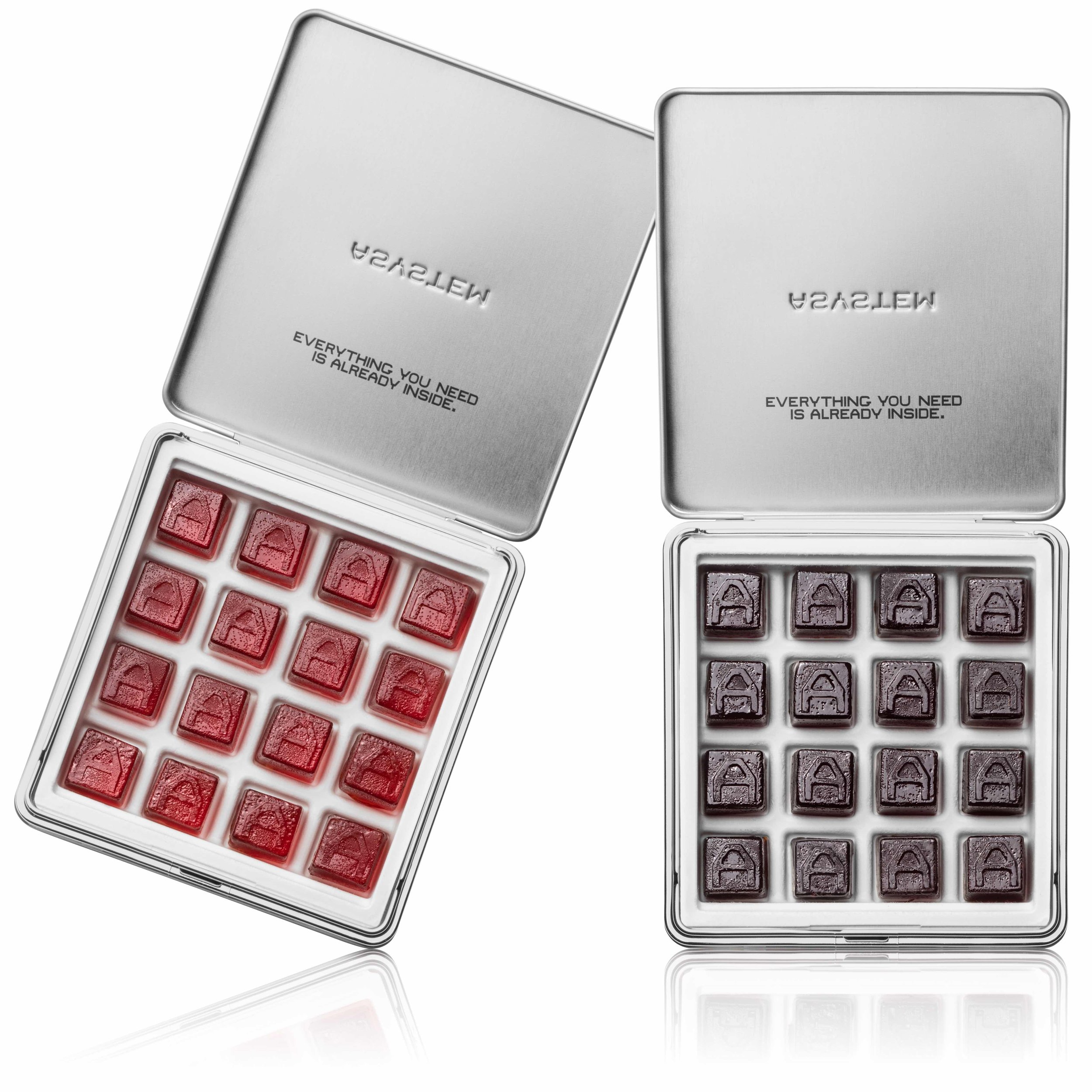
ASYSTEM gummies
Oli explains, “It became clear to us that we’d been fashion guys for a long time. And we love design, aesthetics, and the whole fashion industry. But we felt that our true passions were probably more in the health and wellness space. Josh used to be a pro snowboarder, and I’ve been highly athletic all my life. My idea of pure enjoyment would be up a mountain skiing with a close group of friends, rather than hanging out at Paris Fashion Week. So we set about building a health and wellness company, applying some of what we’d learned from building brands in other sectors.”
Much of their inspiration for ASYSTEM came from the lack of brand recognition in the wellness space. It’s one of the most lucrative industries in the world, and growing every year, yet many people cannot name one supplement brand. “The launching off point was, ‘Let’s create the Nike of supplements,’’’ Oli says. Although their first product was aimed at men’s health, they are now very much a unisex line. But they have maintained a more masculine feel than many of their competitors, with a practical, functional mission and handsome simplicity front and center. Each product contains at least one clinical ingredient backed by data from scientific trials, alongside botanical products which harness the potent power of nature, to target various everyday issues like stress, pain and sleep.
Adopting a solid self-care routine is advisable for us all, but can be easier said than done. Oli has personally established healthy habits throughout his life to prosper at work and play. As well as being a successful businessman, he has also played rugby, hockey and tennis to a high standard, as well as running half marathons and competing in triathlons, and is devoted dad of three. Here, he shares his four pillars of how to adopt, and maintain, good habits:
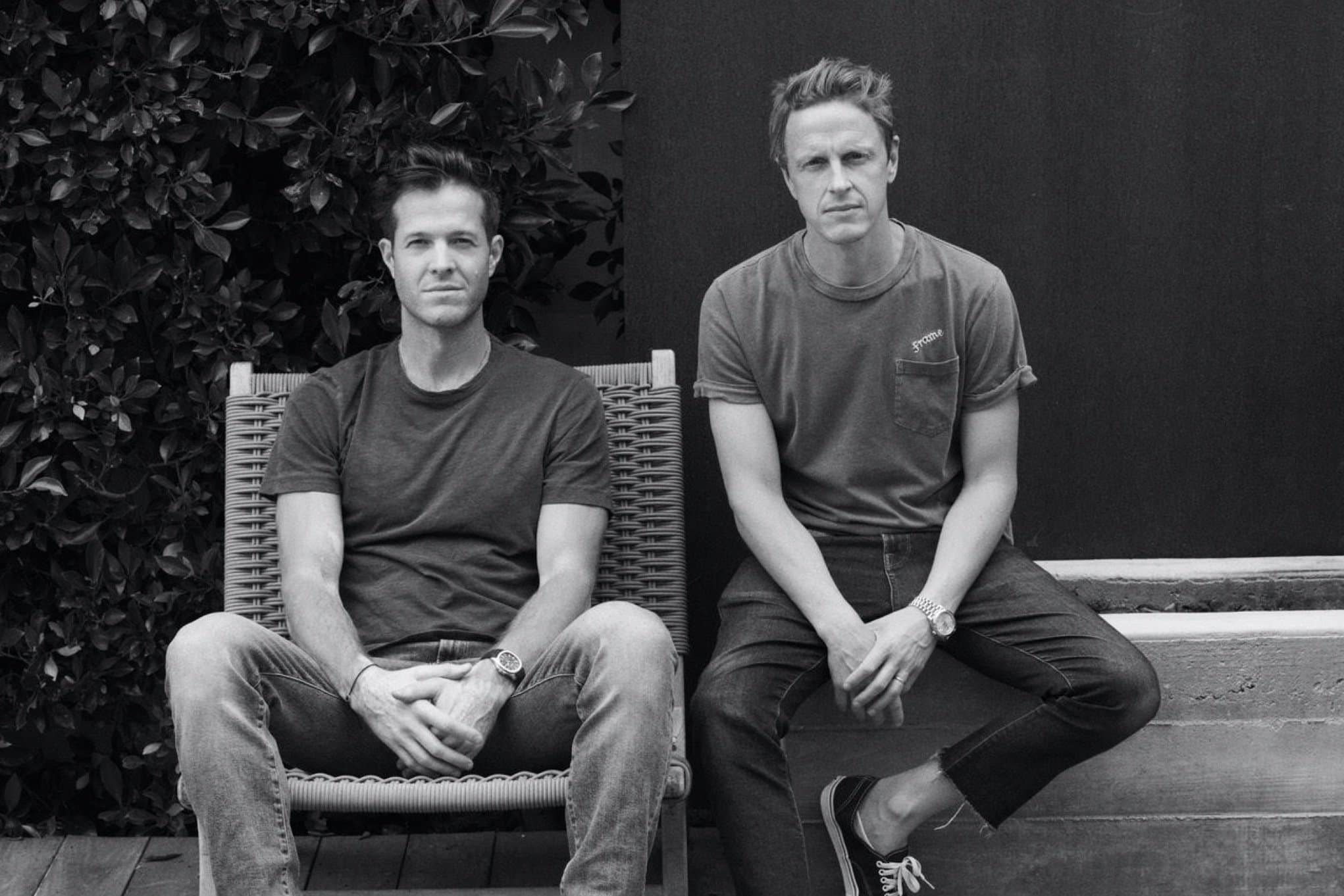
Oli Walsh (L) and ASYSTEM co-founder Josh LeVine
NON-BINARY DECISION MAKING
“If you remove the binary yes or no from the equation, it makes it a lot easier to adopt a habit. For example, I applied that a few years back to exercise. It used to be, ‘Am I going to exercise today? Let me look at the diary…’ And as a result, you probably exercise three or four days a week, because a couple of days, life would get in the way. But a few years ago, I decided I was going to be non-binary about exercise, so every day I have to exercise. It’s not ‘Shall I?’ it’s, ‘What shall I do?’ Now it’s just a part of my day. And you can apply this non-binary idea to all sorts of things, like eating sugar, drinking alcohol, and more. It really helps with habit creation.”
VISIBILITY
“If you see something, then you’re much more likely to do it. That ties very much to our philosophy for the packaging design with ASYSTEM. Most supplement brands are so ugly, you keep them hidden away. Our viewpoint was, we needed to design functional, beautiful packaging, that people feel comfortable putting out on display. So if we build a supplement brand that looks good enough to sit next to your Nespresso machine, then you’re going to see it every morning when you make your coffee. And that means you’re going to use it every day.”
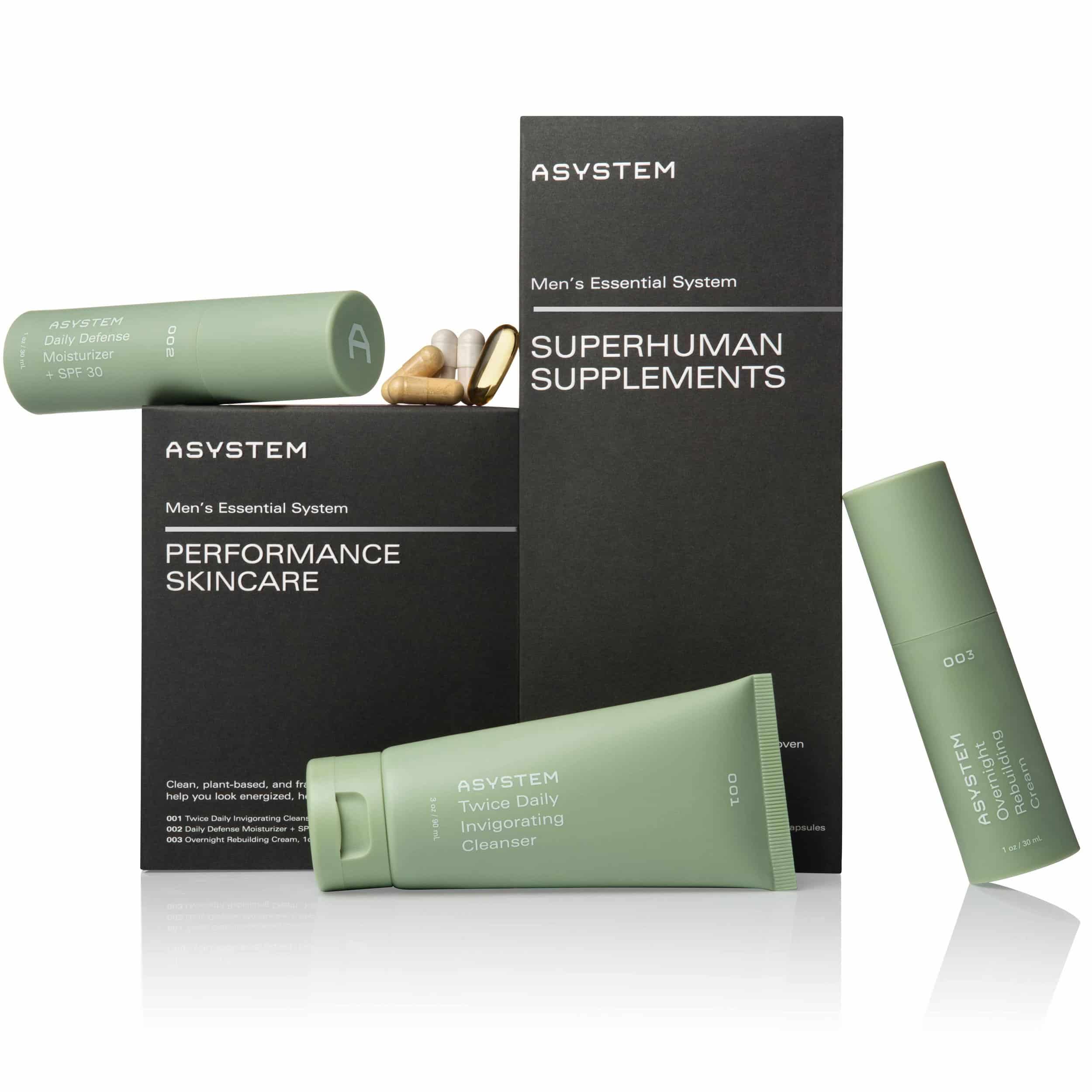
ASYSTEM men’s Total Body selection
ACCOUNTABILITY
“I’m not a big person for publicly stating my new habits on social media, like many people are, but the idea behind it works. My version of that would be stating it to my wife, and saying, ‘Okay, I’m going to do this.’ It could be a work thing, it could be personal thing. But sharing that intention makes me feel accountable to somebody else other than myself, and it’s such a powerful motivator to follow through with what you said. Because you said it to somebody who you love, and you don’t want to let them down.”
FUN
“I think a lot of people take habit formation too seriously. If you miss a day, it doesn’t really matter. Or if you want to gorge on Thanksgiving, that’s completely healthy. For me, if exercise feels like a chore, I’m not gonna do it. But take a long hike in nature, or play tennis with a friend, and mix up your workouts so it becomes a really enjoyable part of the day.”
Learn more about ASYSTEM here


